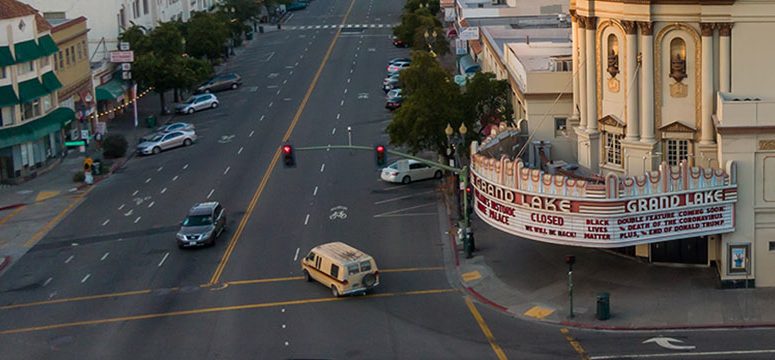National transportation reform groups released a collective groan yesterday, as the details of the two-year transportation bill agreement hashed out in committee were made available. While many acknowledged the bill could have been worse, it's still something of a kick in the shins for anyone who cares about safer streets and smart transportation policy. Here's a round-up of what people are saying.
Caron Whitaker at America Bikes noted that the bill's erosion of dedicated funding for safer streets is diametrically opposed to Americans' clearly expressed preference for more transportation options:
Across the country, people are biking and walking more, and vehicle miles traveled are decreasing. Young people are delaying getting their driver’s licenses and the real estate market shows that people want to live and work in areas where they can walk and bike safely. Yet this new bill ignores current trends and includes drastic and disproportionate cuts to biking and walking.
As Andy Clarke at the League of American Bicyclists added, cutting bike/ped funding won't be the big deficit-slayer that House GOP leaders made it out to be:
These drastic cuts to biking and walking funding do not save the federal government any money. Rather, it keeps current levels of funding and directs funds away from street safety projects.
In fact, as Deb Hubsmith at Safe Routes to School pointed out, it will likely cost Americans more in the long run:
The annual cost to hospitalize children for injuries due to bicycle and pedestrian collisions is more than the entire amount of Transportation Alternatives funding in the new transportation bill, and Safe Routes to School will only get a fraction of those dollars.
Kevin Mills of the Rails to Trails Conservancy said the bill is behind the times:
It shrinks from the challenge of meeting America's need for forward-looking 21st century policy that provides balanced transportation choices and improves public health and safety, the quality of our environment and the livability of our communities.
The agreement is being sold as a "jobs bill," but Laura Barrett of the Transportation Equity Network said that it fails to achieve much in the way of job creation:
With the release of this report, the conference committee, under the leadership of Sen. Barbara Boxer (D-CA) and Rep. John Mica (R-FL), has missed important opportunities to create even more jobs through flexible transit operating provisions that cost the federal government nothing and to establish career pathways for low income people, people of color, and women in the transportation construction industry.
Many advocates, however, noted it could have been worse. The House never passed its bill eliminating dedicated funding for transit, and some protections for dedicated bike/ped funding remain in the final bill.
Tim Blumenthal of Bikes Belong said that, although this is a major setback, the movement to make bicycling safe, accessible, and widespread isn't going anywhere:
Bicycling has developed broad and increasing support from local governments, health care leaders, small business, and, most importantly, the American people. The effort to make bicycling safer and easier for all Americans—a push that includes cost-effective investments in infrastructure--will continue to grow.






